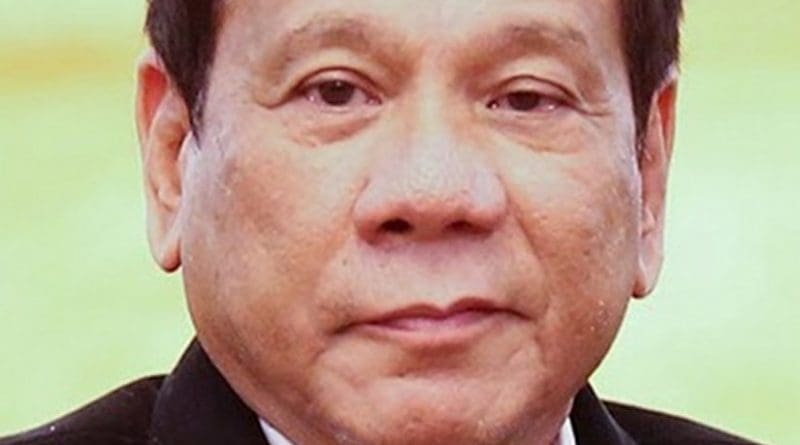In Duterte’s Philippine’s It’s Kill Now, Investigate Later – OpEd
By UCA News
By Inday Espina-Varona*
Philippine police officials last month executed a 17-year-old student. They claimed Kian de los Santos had pulled a gun on arresting officers, forcing them to shoot him.
Community security cameras caught police in a lie. They captured officers dragging a struggling youth through an alley. Witnesses would later help track the route they took to the kill zone. There, police forced a gun on Kian. When he refused the bait, they ordered him to run.
State forensic experts said there was no firefight. Kian was kneeling when police shot him in the back and head.
That killing, one in more than 12,000 linked to President Rodrigo Duterte’s drug war, sparked protests. Clergy and other religious finally crawled out of their shelters of silence. Political allies demanded a review of his anti-narcotics campaign. Even the president’s fan base showed the first signs of cracks.
What prompted many Filipinos to finally start saying, “enough?”
A Senate investigation later unearthed more horrifying details. Under a barrage of questions, police admitted they swooped down on Kian with no proof of his involvement in the illegal drug trade.
What “intelligence” they had was culled after his death.
Officers tagged Kian as a drug runner based on garbled statements by a terrified suspect hauled off the street and — to gasps of dismay from legislators and observers — from social media posts launched by Duterte’s well-oiled propaganda machine.
Those who had given police the benefit of the doubt erupted in anger and more than a thousand people marched at his funeral.
Kian’s death had exposed how unvetted whispers and coerced testimonies underpin Duterte’s drug war; his case showed that police are falsifying evidence to justify unlawful killings and meet the president’s criteria of success, as Human Rights Watch warned last year.
The Philippines is a signatory to the International Covenant on Economic, Social and Cultural Rights. The first section of its Constitution’s Bill of Rights states: “No person shall be deprived of life, liberty, or property without due process of law…”
In the name of his war, and with much reference to the fate of the country’s youth, Duterte has swept away basic civil liberties in the country.
His systematic rampage starts with the use of “intelligence” as a catchall excuse for killing.
Duterte rests his war on the claim of the Philippines having 4 million drug addicts. The national drug enforcement agency has asserted, “one in every eight households has a drug personality” — 2.5 million people in a country of 20 million households.
Yet a national government survey of 5,000 people, conducted December 2015 to February 2016, categorizes 94 percent of respondents as “non-users” or had “never used drugs before,” according to the Philippine Center for Investigative Journalism.
Police get targets through neighborhood dragnets, where armed enforcers knock on homes with “requests” to surrender, or else.
More than a million people have flocked to this cattle call, to discover they have been found guilty.
Police take mug shots and hand out forms with only two categories: user or pusher. There is no none-of-the-above box. Processing officers do not accept explanations. Everyone ends up a drug personality.
Officers then fan out, picking up the same people and forcing them to identify contacts, or else, multiplying the numbers of targets.
Rise Up, a multi-faith rights group dedicated to victims of Duterte’s drug war, has documented cases where youth were held and tortured until they coughed up names.
A name for your life. Sometimes, a life for a missing target as police, under pressure to prove Duterte right, have taken relatives when suspects are not around.
It is not enough to blame police, says Father Gilbert Billena, whose urban poor parish has suffered more than 40 killings in 13 months.
He and other critics see the president as the architect of death: promising to place lawmen beyond the reach of law and justice, returning to service officers accused of murdering jailed drug suspects.
In one bloody week last month when 90 people were killed over two days in Manila and nearby regions Duterte crowed with glee, urging police to step up attacks on drug personalities.
Kian was among those caught up in the killing spree.
The brazen action of Kian’s killers, the lies that flowed in the days after he died are hallmarks of impunity, the acts of the untouchable.
Under Duterte, the fast-track to success is the kill figure, the notches on the belt of Philippine police. Proper legal process, casework, is an afterthought, a fallback. An excuse for the continuing slaughter.
*Inday Espina-Varona is an editor and commentator based in Manila.

